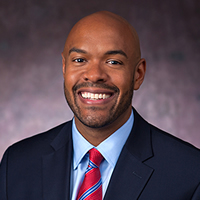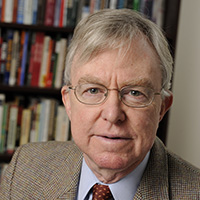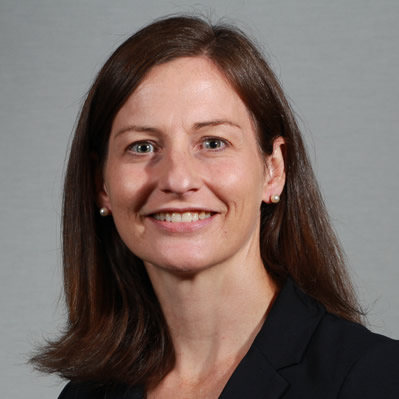This network explores the role of tax and transfer policies in encouraging labor market participation, reducing poverty, and supporting healthy, stable families; the role of tax and transfer policies in job creation and stimulating demand for labor.
Co-Leads
James Ziliak
Email:
jziliak
James Ziliak is the Carol Martin Gatton Endowed Chair in Microeconomics, Founding Director of the Center for Poverty Research, and Founding Executive Director of the Kentucky Federal Statistical Research Data Center at the University of Kentucky. His research interests are in the areas of labor and public economics, with a special emphasis on U.S. tax and transfer programs, poverty measurement and policy, food insecurity, and inequality. Recent projects include trends in earnings and income volatility; the origins of persistently poor regions in America; and the effect of survey nonresponse on the level and trends in poverty and inequality.
Members
Christopher Brown
Christopher Brown, Head of Regional Government Partnerships at Bird (Bay Area and Pacific NW), has served at the intersection of policy/politics, community affairs, and the business community for over 15 years. He was previously Counsel for the U.S. House Committee on Education and Labor, and Legislative Director for U.S. Rep. Bobby Rush (IL-1). He later served as a longstanding Director at PolicyLink, a national public policy institute focused on racial and economic equity across transportation, banking, and the larger economy. He brings a depth of experience in bridging community needs to government policy and business practices, and implements equity-based strategies for business operations and community partnerships.
Jeremie Greer
Jeremie Greer is Co-Founder and Co-Executive Director of Liberation in a Generation. Over the course of his life and career Jeremie Greer has been dedicated to the advancement of racial and economic justice. Growing up in the historically Black Rondo Neighborhood, in St. Paul MN, he has always been attuned to the intersection between race and economics. He began his career in the Columbia Heights and Shaw neighborhoods in Washington, DC, organizing youth and tenants to fight back against the economic forces rapidly gentrifying that community. Working at the national level in the federal government’s premier policy agency, the Government Accountability Office (GAO), and at two national non-profits, the Local Initiative Support Corporation (LISC) and Prosperity Now (formerly CFED), he has become a national policy expert on the causes and the policy solutions to close racial wealth gap. Jeremie has a Bachelor’s Degree in Social Work from the University of St. Thomas, a Master’s in Public Policy from George Mason University, and is currently working on an Executive Education Certificate in Nonprofit Leadership from Harvard University’s Kennedy School.
Elaine Maag
Elaine Maag is a senior research associate in the Urban-Brookings Tax Policy Center at the Urban Institute, where she studies income support programs for low-income families and children, with an emphasis on tax policy. Maag codirected the creation of the Net Income Change Calculator, a tool that allows users to understand the trade-offs between tax and transfer benefits, and changes in earnings or marital status. She is currently serving as a member of the National Academy of Social Insurance’s Study Panel on Universal Family care. Previously, she worked at the Internal Revenue Service and Government Accountability Office as a Presidential Management Fellow.
Bruce Meyer
Bruce D. Meyer, the McCormick Foundation Professor at the University of Chicago Harris School of Public Policy, studies poverty and inequality, tax policy, and government safety net programs such as unemployment insurance, workers’ compensation, food stamps, and Medicaid. His most recent work includes research on trends in poverty and inequality, the consequences of disability, the effects of Medicaid, and the accuracy of household surveys. Meyer has also served as an advisor to numerous federal agencies and other prominent public and private organizations.
Robert Moffitt
Robert Moffitt is the Krieger-Eisenhower Professor of Economics at Johns Hopkins University. His research interests are in the areas of labor economics and applied microeconometrics, with a special focus on the economics of issues relating to the low-income population in the U.S.. A large portion of his research in labor economics has concerned the labor supply decisions of female heads of family and its response to the U.S. welfare system. Moffitt has also published research on other safety net programs, the labor supply and family structure effects of social insurance programs, and the U.S. income tax system.
Aaron Yelowitz
Aaron Yelowitz is a Professor of Economics at the University of Kentucky and the Director of the John H. Schnatter Institute for the Study of Free Enterprise. He is also a joint faculty member in the Martin School of Public Policy and Administration at the University of Kentucky and an adjunct scholar with the Cato Institute. He conducts extensive research in the area of health care, including Medicaid managed care and the Affordable Care Act. Other recent research topics include housing and real estate markets, life insurance, racial disparities, paid sick leave, property taxes, and state-run automatic IRAs.











